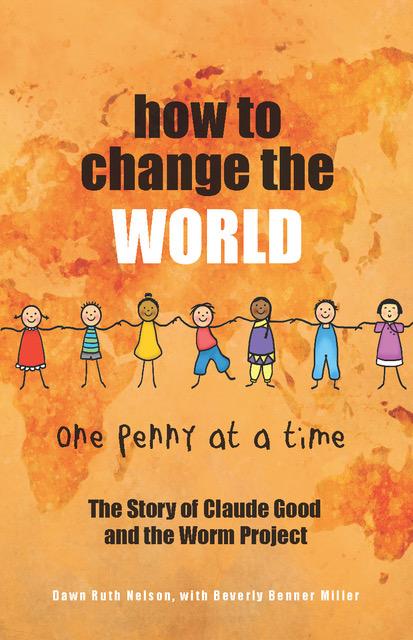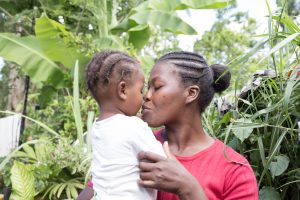“How to Change the World, One Penny at a Time: The Story of Claude Good and the Worm Project” (208pp. illus. Masthof Press, 2021, $14.00)
This book serves as a tribute, not only to Claude Good and the “Worm Project,” but also to the book’s author, Dawn Ruth Nelson. While writing the book, Dawn Ruth Nelson was diagnosed with cancer; fellow writer, Beverly Benner Miller, finished the book when Dawn could no longer continue the project.
This book offers fascinating insight into mid-twentieth century, rural, Pennsylvania, Mennonite life, especially for those, like me, who are uninformed. Claude Good began life with plenty of challenges, including a difficult family life. But even from his earliest days, he (and his wife, Alice) seemed to be followed by a wonderful sense of call and purpose.

This call and purpose saw them both overcome not having opportunity to go to high school, yet eventually each earned a degree at Eastern Mennonite College (Harrisonburg, VA). Claude even continued to receive a graduate degree in sociology at Cornell University (Ithaca, NY) and pursued theological studies. In 1960, with additional training from Wycliffe Bible Translators, the Goods, sponsored by the Franconia Mission Board, settled in the remote town Chicahuaxtla, Mexico. Chicahuaxtla was home to an indigenous native tribe, the Triqui.
The Goods raised their family (three daughters and two sons) in the village for the next 25 years (without electricity for ten years). Over that time, the New Testament was translated into three Triqui dialects.
The Goods (and the Blank family, who joined them in 1961) found themselves occupied with a great deal of makeshift primary healthcare work, as medical facilities in the region were scant. Yet the fruits of their work, such as conversions, baptisms, and the beginning of a small church in 1974, were evident. Sadly, social and political unrest caused the Good family to relocate to the US in 1985.
Claude continued to helped with translation of the Triqui Bible while also doing ministry in local Franconia area churches. Alice finished a Master’s in Education and became a chaplain at several retirement communities. They settled into Souderton (PA) Mennonite Church, and it seemed as if the Goods might have finished their direct ministry in Chicahuaxtla.
But, in the early 1990s, “The Worm Project” began. The Goods had long been aware that digestive problems, specifically intestinal worms, were a major health problem for the Triqui. Claude discovered that, by simply including Albendazole tablets into their diet, the intestinal worm challenge would largely be abated. However, these tablets were not readily available to the Triqui people. When one reads Claude’s reflections from that time, it almost seems that at the age of 69 he had finally found his life’s calling.
The rest of the book details how “The Worm Project” took on shape. Claude gave himself tirelessly to this project, with efforts that achieved great things, not only for the village of Chicahuaxtla, but throughout the world. In the end, Claude’s wide network of collective work brought a good deal of recognition to him and his humanitarian work, centered on the fight against intestinal worms throughout the globe.
The book ends with Alice’s death in 2008 and Claude dying peacefully in 2019, at age 90.
A story like this points out that even an impressive, challenging, worthy, first 25 years of ministry can still be preliminary preparation for an even greater work to follow. For Claude and Alice Good, that certainly seems to have been the case.
To purchase a copy of the book, click here. Proceeds from the sale of this book will go directly to The Worm Project to purchase medicine to treat even more children from parasitic worms.
More information about The Worm Project is available at their website.




 After returning to the United States, Claude’s ministry moved to a home base at the conference center. Claude quietly contacted government officials in countries around the world, promoting Albendazole deworming pills as an effective way to address severe malnutrition issues caused by parasites. Today, The Worm Project is a very unique “Matthew 25” ministry, and its fundraising efforts captures the imaginations of young and old alike. We marveled over the cost of deworming pills (at that time, $.05, lasting for six months) compared to $5/month for deworming pills for our pets. We shared practical ideas for simple living, making peace, and sharing the gospel.
After returning to the United States, Claude’s ministry moved to a home base at the conference center. Claude quietly contacted government officials in countries around the world, promoting Albendazole deworming pills as an effective way to address severe malnutrition issues caused by parasites. Today, The Worm Project is a very unique “Matthew 25” ministry, and its fundraising efforts captures the imaginations of young and old alike. We marveled over the cost of deworming pills (at that time, $.05, lasting for six months) compared to $5/month for deworming pills for our pets. We shared practical ideas for simple living, making peace, and sharing the gospel.
